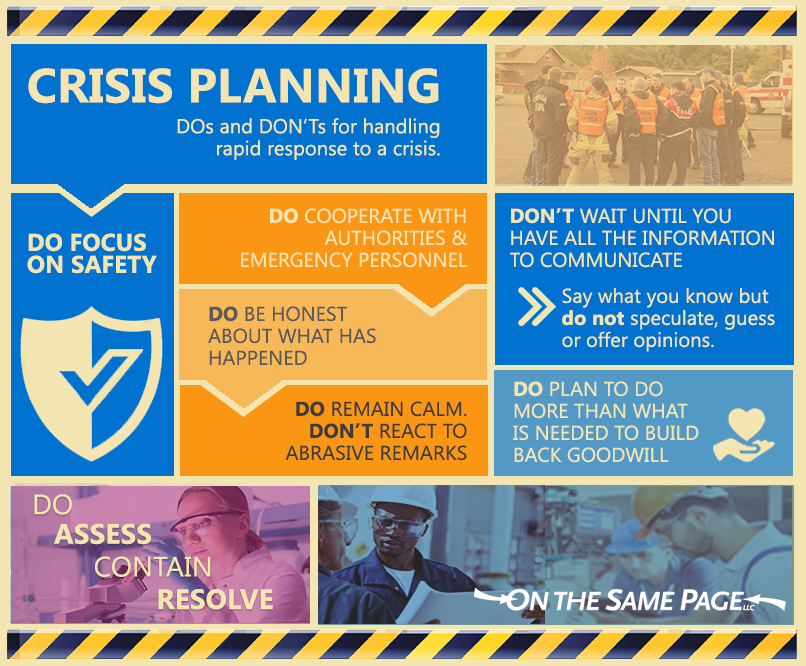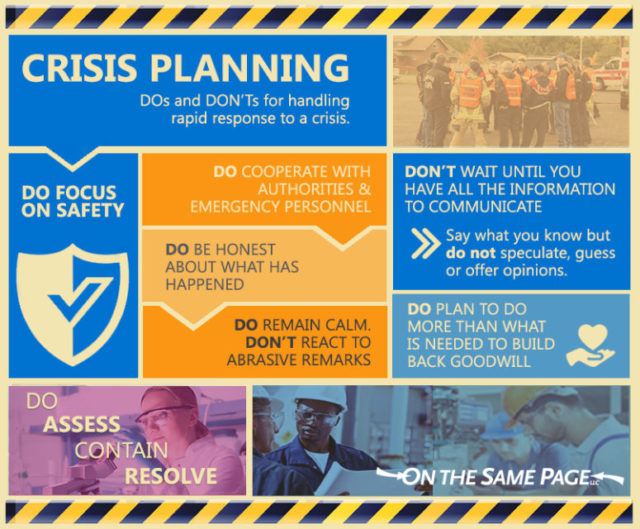W hen crisis strikes, leadership turns to Legal, Communication and Human Resources professionals for guidance. Invest time now in planning how you manage a crisis. You hope you never need the plan, but if you do, it’s too late to initiate the process once something catastrophic happens. Rapid response is critical in times of business crisis.
hen crisis strikes, leadership turns to Legal, Communication and Human Resources professionals for guidance. Invest time now in planning how you manage a crisis. You hope you never need the plan, but if you do, it’s too late to initiate the process once something catastrophic happens. Rapid response is critical in times of business crisis.
Here are the guiding principles, the DOs and DON’Ts of effective crisis management:
1. All responses should start with a focus on safety (employee, customer, community, environmental).
2. Cooperate with authorities and emergency personnel.
3. Plan to do more that what is needed in order to build back goodwill with employees, customers, partners, vendors, other stakeholders and the community.
4. Communicate quickly:
- Be open and honest about what is happening or has happened.
- Remain calm. Don’t retaliate. Don’t react to abrasive remarks.
- Focus on safety and protecting the rights of employees (for privacy) and the company (legal rights).
- Avoid waiting until you have all of the information to communicate. Say what you know now or today. Do not speculate, guess about what happened or offer your opinions.
Everybody makes mistakes. But having a solid plan in place to address the negative whiplash or complaints in a timely and transparent manner will not only help preserve your company’s reputation, but confirm yet again that you are a business that cares about its customers and willing to go an extra mile to make them happy and live up to your reputation.
10 Tips For Reputation And Crisis Management In The Digital World, Ekaterina Walter, Forbes





